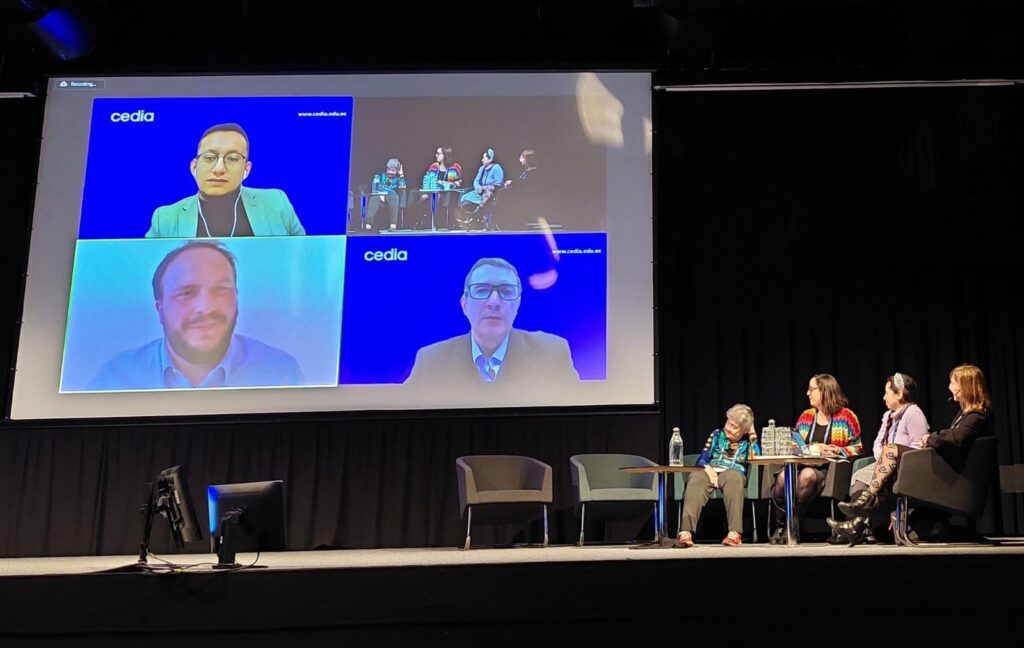RDA is the research data alliance with more than 10,000 members from 145 countries.

Javier Valdiviezo, head of the Academy Area, and Freddy Sumba, IDi IT engineer at CEDIA , participated in the RDA Plenary 20th Session: Building Institutional Partnerships for the Future event. In this important event, they presented the current situation of data and metadata repositories in Ecuador, as well as the efforts being made to promote their use and sustainable development.
Research Data Alliance – RDA , is the research data alliance with more than 10,000 members from 145 countries, which provides a neutral space where its members can come together to develop and adopt an infrastructure that promotes data sharing and research based on them.
This year's GDR P20 hybrid meeting ran from March 21-23 in Gothenburg, Sweden. In this space, Javier Valdiviezo and Freddy Sumba highlighted the work that CEDIA has been doing since 1999, providing funding, training, and support to researchers and institutions to collaborate and share data securely. They also mentioned that the lack of fully implemented data repositories in Latin America and Ecuador is due to a combination of factors. For which, CEDIA works as an articulating agent between researchers, universities, ministries and international partners, with the aim of supporting the development of research in the country and the region.
To address these challenges, CEDIA has established partnerships with international organizations such as the RDA community, DataCite, and the global Dataverse consortium, and they are working on creating a federated national data research repository based on best practices and access policies used. in Europe and the United States.
Finally, it was highlighted that the Latin American region is increasingly aware of the importance of research data management and exchange, and a greater participation of institutions and researchers in the community is expected in the coming years. Furthermore, cloud-based data repositories and best practices in data management are expected to become critical tools for future research and innovation.

